Time for Canada to help Europe step up. My speech at CANSEC2025.
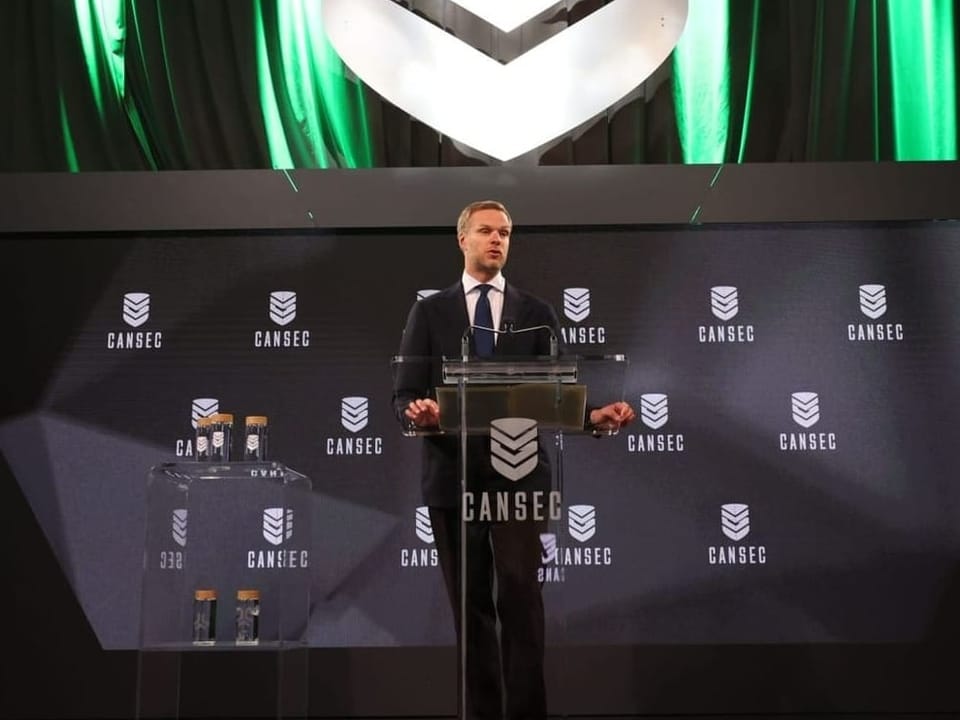
On May 29th, 2025, I gave a keynote speech at CANSEC2025, Canada's largest defence industry conference. My intention was to encourage the Canadian defence industry to join me in my efforts to wake Europe up and make it ready to deter Russia, or, if necessary, to fight back.
As the US signals stepping down in Europe, there are many opportunities for Canada to do its part to step in and fill the gap, together with the growing European defence industry. Hopefully I inspired more Canadians to join us.
The full text of my speech is here:
Dear Ladies and Gentlemen,
What a great honour to address such a distinguished audience.
Let me start by saying a few words about my background and why the organizers of this distinguished event thought I might have a perspective worth sharing with you.
My name is Gabrielius Landsbergis. Until December of last year, I had the honour of serving as Minister of Foreign Affairs of Lithuania.
I was born during the Soviet occupation. Among my earliest memories are my parents and grandparents telling me stories of pre-war Free Lithuania. I was told about German and Russian troops taking turns to invade our country. And I was told that we should never lose hope for freedom.
I remember going to independence rallies with my mother. I remember her hurrying me away from police officers when they began attacking the crowds with batons. I remember the sound of Soviet tanks rolling into the streets of Vilnius in 1991 — less than a year after we declared our independence. I remember the picture of the last Soviet soldier leaving my country.
So it is not an exaggeration to say that in Lithuania, we cried tears of joy when we joined the EU and NATO. Finally, after decades of fighting for freedom, we were back where we belonged — in the West.
And I’m sure many of you who have visited Lithuania would agree: the transformation since then has been phenomenal. We were 50 years behind, and now we’re not behind at all.
If you ever need to annoy a Lithuanian, call their country “post-Soviet”. We do not accept that our country was ever Soviet, so it can’t be post-Soviet either. A more correct term would be “never-Soviet”.
Lithuania has the dubious distinction of needing three national days — one to commemorate the coronation of our first King in the thirteenth century, and two to mark both our liberations from Moscow. You can understand why we are so strongly against the idea of needing to do that again.
You can also now understand what we felt like watching Russia attack Georgia in 2008, then Ukraine in 2014, then full-scale in February 2022.
I remember attending a meeting of European Foreign Ministers just days before the invasion. A colleague had shown me a video, recorded by an OSCE observer near the contact line — a seemingly endless column of old Russian T-72 tanks rolling on the Russian side of the border.
That shaky video hit me: these were the same tanks the Soviets used to crush Lithuanians in my city. It is not an overreaction to think that if the international community allows them to return to Ukraine, they might return to Lithuania, and keep rolling West.
For four years as minister, I stood with Ukraine. I did everything a representative from a small country could do. I offered all the help my country could and I did my best to hold our allies accountable, I pushed them to do more.
Firstly, because it was the right thing to do — victims must be defended, enemies defeated, justice restored, compensation paid and abducted children returned. But also because, in Lithuania, we knew: if Ukraine fails to withstand the assault, Putin will turn his ambitions towards us.
When we say we must thank Ukraine for defending us, we aren’t just being polite. We mean it. Lithuania lacks strategic depth — our entire territory spans just 300 kilometers. But because of the heroic sacrifices made by Ukrainians, Russian forces are stuck 800 kilometers away.
After the Cold War, we in the East experienced how quickly you can get high on freedom and hold on to the belief that history has truly ended. Even more than Westerners, we believed the future could only get better, that wars were only for distant lands, not for Europe.
But now, most of us are spending well over 2% of our GDP on defence. Poland is a shining example. The Baltics are following suit. So are the Nordics and much of Central Europe. Russia’s invasion of Ukraine restarted history.
The war is also changing the EU. Designed to prevent war, its institutions were built around consensus-based decisions. That made them slow — sometimes embarrassingly so — but it also made us peaceful. It’s now taking time for Europe to adjust to a lack of peace.
It is grudgingly difficult to convince your people that the money needs to be borrowed and invested, to recruit, to train, to coordinate and do that with a ticking clock, but it’s gradually being done. And the war is NOT the only reason for stepping up. The US threats to step down are pushing Europe to do more.
So that’s how I found myself here, talking to you. And I would like to pose a question. And if we find the answer, we will know where to go from here. The question is this:
Why is Europe still not where we would like it to be?
Why, in the third year of the full scale invasion, the 11th year after the war started and during the SECOND Trump administration we in Europe are still not where we would like to be armed, able to deter enemies and equipped to assist partners and friends.
One answer is inertia. For years Europeans did not believe that Russia would ever be interested in wide scale escalation. The belief was that with a combination of transatlantic security guarantees to Europe and economic incentives to Russia it would be possible to keep Putin's ambitions, and decrepit military forces, in check.
When I say in check, I mean that a certain level of escalation in the minds of politicians was permissible - as long as it did not threaten Europe proper. During that time, Europeans said all the right things, but unfortunately did very little preparation.
After the 2022 invasion there was hope that the situation would change dramatically and European factories would start rolling out new tanks, howitzers and ammunition. This happened, but not to the extent that one could have hoped.
The inertia of unshakeable trust in Transatlantic deterrence, and a failure to see the centrality of Ukraine in the defence of Europe led us to a point of harsh realisation that Europe has wasted decades of preparation.
Every conversation I had with defence industry representatives during the years of war would end with “I’m not building anything until you show me the money”. And that was the crux of the problem - Europe would talk nice but spend little. And business leaders, Putin, or anyone who is good at math, could see right through it.
As a Lithuanian, I must of course take care to thank our Western allies more than once. Whenever another baby step is taken, I must show gratitude and whisper to myself “better late than never”. When another weapons system is donated, late, with insufficient ammo and with orders not to use it against Russia too much, I must applaud and whisper to myself “better than nothing”. But I think you all now understand why I argue so frequently for more.
Now, after the snooze button was hit on every alarm since 2008, we are finally starting to see our leaders talk about serious money.
The European ReArm plan might be the first step in the right direction - first of all it allows countries to spend more than the Maastricht defecit ceiling. An extra 1.5 percent of GDP can be spent on defence. That is nothing to sneer at - it will bring substantial money to the sector.
Germany’s leap will be biggest - half a trillion euros in defence spending is going to make a lot of difference, the sheer amount will drive multiplication - more private money will come into the sector. This commitment could also encourage other - more doubtful countries, who could borrow more, but are reluctant to do that at the moment.
I count on Europe to figure out a common budget for defence. ReArm does not do enough to leverage our collective buying power, countries are mostly left to operate alone. That means that smaller countries, like mine, are at a disadvantage because their smaller orders end up at the far end of the waiting list.
Let’s remember that the Eastern Flank is mostly made up of smaller countries.
I am of course biased, but I hope that you also find it unfair that the area under the greatest threat is less able to arm itself despite spending the largest percentage of GDP on defence.
A common defence fund for Europe would distribute the load equally among members and would allow much more investment, with faster delivery times and lower borrowing costs. That would be the aim we should focus on.
The American Elephant in the Room
And now I would like to discuss the elephant in the room, your southern neighbours, and forecast their leader’s effect on the future of my continent.
Trump is not going away, his disruption will continue, the uncertainty will increase. That makes one thing certain for me. Europe, whether or not it wants to, will be forced to transform its role in global security from that of a client to that of a donor - to itself and to Ukraine.
As Trump started his second term, Europe was already aware that Trump was not happy about European freeloading. But nobody was prepared for what was said by Vice President JD Vance during the Munich security conference.
His was not a push for Europe to do more, it was a push that could lead Europe to tumble off a cliff edge. The situation in Europe has never been more dangerous. Europe has not been preparing, and we have suddenly been notified that we can no longer depend on the US for security. The whole world now knows how vulnerable we are.
Is article 5 still in place? Can we trust the US nuclear umbrella? How is all of this being perceived by our adversaries? These were the questions European leadership started silently asking.
To help answer these questions, I will try to illustrate the situation from the viewpoints of three groups of actors: The Disruptors, The Defenders and The Allies.
The Disruptors
Putin and Trump both bet their farms on the power of disruption. The chaos they cause is predictable in that they always choose to cause it.
Putin is far from finished and his ambitions are far from satisfied. Some of those around him doubted the wisdom of attacking Ukraine, and some of them fell out of windows. But today, in my estimation, those doubters have been proven wrong.
Yes, the war has been costly. But from the Kremlin’s point of view, it’s working. Russia is closer to “correcting” what Putin calls the geopolitical mistakes of the 20th century. And he’s not done yet. If he wins in Ukraine, he will be in a good position to threaten others.
Donald Trump is enthusiastically disrupting the European security architecture — creating, alongside Putin, a perfect storm. Europe today faces not only its greatest external threat, but also uncertainty about its main ally’s commitment.
Deterrence depends on trust and belief. The enemy must be convinced that we have the political will and capability to retaliate if attacked. However, in recent months, the political will has started to look very shaky. This may already be shifting Putin’s calculations, encouraging him to throw even more chips in. Remember — for deterrence to be effective, the only person who has to believe in Article 5 is Putin. I doubt he believes in as strongly as before.
And now to the second group.
The Defenders
I won’t recount all of Ukraine’s battlefield achievements — many of you know them well. But what’s most remarkable is the fight happening right now, today. It’s not like 2022 or 2023. Today, Ukraine is fighting largely with its own innovations. Not just new technology, but battlefield doctrine — reimagined in real-time.
Every night, hundreds — sometimes thousands — of drones strike behind enemy lines. They slow Russian forces. They deny artillery and armor near the front. These are invaluable lessons — lessons Ukraine is teaching its allies. The next war — if it comes — could look a lot like this one. And it could again be against Russia.
What Ukraine is building now allows it to put up a fight. Scaled tenfold or a hundredfold, it would allow not just defence — but deterrence.
The Defenders remain on a knife-edge. Russia won’t mobilize yet, because their society might not tolerate it. Meanwhile, Ukraine holds on for meaningful support. If we help now — Ukraine might succeed. Those who fear escalation should remember that it is possible to push Russia’s cost of escalation past the limit. If you were here for the first half of my speech, you will know that we did that before and we can do it again. But the window won’t be open forever.
The third grouping I want to talk about is:
The Allies
I am sure the upcoming NATO summit will offer many affirmations of unity and resolve. But beyond that, we must also think about Plan B. If we cannot convince the US that a stable transatlantic alliance is in its clear interest, we must do all we can to deter Putin’s escalations while we wait for the US to realise their mistake.
By the way, when I say “deter escalation” I am not referring to bribing Putin with trade deals or territorial concessions, because that doesn’t deter his escalation, it merely encourages it.
So, while The Allies wait for the US to come round, there is a lot that Canada, the United Kingdom, and other partners can do to build a security architecture that would preserve peace through this disruptive period. I will end my speech with five strongly recommended ways for them to achieve just that.
Recommendations
First of all, you might remember the movie "Don't Look Up", where the world was gripped by denial of the threat of an incoming meteorite. Governments tried to calm the panic by suggesting to their populations that it would be better not to look at the sky. That, as you can imagine, did not solve the meteorite problem. If we continue behaving like the governments in the movie - the geopolitical impact will be brutal. So my first recommendation is this: Leaders must start being straight with their people, explaining reality rather than sugarcoating it. The threat is real and lies aren’t going to make it go away.
Secondly, I would again say: Prepare seriously for the serious situation ahead. Invest not just what's left in the spreadsheet of the old program, start new programs, create new frameworks, increase all the numbers by orders of magnitude. And yes that might require a rethinking of the social contract between leaders and voters. That is why my first recommendation was about being honest with taxpayers.
Thirdly, buying tanks is not enough. The Allies must prepare for the war of tomorrow, not the war of yesterday. And there is no better way to do that than to learn from Ukraine. I am not suggesting that traditional NATO methods will not work, but we have to be reminded that those plans were prepared for the optimal situation - with full intelligence, preparedness and what's most important - political will. Now the enemy is not going to give us the luxury of that kind of situation. He is not going to wait for the ideal situation FOR US, he would attack when we are at our weakest, unprepared and unwilling. And that is where old doctrine might shatter.
None of us planned the defence of Ukraine because the country was supposed to fall in three days. Almost a million injured and dead Russians later, the country has devised technology and methods to defend their country even, to put it lightly, in a suboptimal scenario. We need to learn how they do it, because our own scenarios will probably be suboptimal too.
My fourth recommendation to The Allies after the cracks appeared in our friendship with the US: Be present in Europe. For years to come Europe is going to be a major geopolitical theater. Europeans will undergo a radical socioeconomic change for which they will need partners. In some scenarios Europe might find itself with more money than the ability to spend it. We in this room are well aware that the US, deliberately and proactively, is burning its credibility when it comes to selling arms to partner countries. At least for a while, we will see more people and more countries avoiding doing business with the US.
My fifth and final recommendation is more meditative. The news cycle moves so fast, we sometimes forget that reality doesn’t. It will take a while for stability to return, even if we do all the right things. Geopolitical uncertainty is like tectonic plate movement - when one plate shifts, it unsettles all the others, causing earthquakes that are hard to predict, but inevitable. The energy has to go somewhere. What Putin has set in motion already has many implications globally. I'm pretty convinced that dictators everywhere consider this to be the perfect time to settle old grievances, expand borders or whatever else might feed their unrestrained egos. They are all ready to create their earthquakes, and it can take a very long time for the plates to find a place to settle. We must have patience and keep monitoring the vibrations in the ground.
Conclusion
In conclusion, even if my emotional, historic and ideological arguments for arming Ukraine are unimportant to you, I hope you have understood how they form the basis for a logical, rational, and even profitable response to Putin’s aggression.
I hope that I have managed to illustrate the certainty that Putin’s Russia, and even Russia after Putin, will never stop their centuries of imperialism until they are stopped by force.
I hope that I have presented a path to the future on which the vital transatlantic partnership can be shored up and defended even without US enthusiasm. You here in Canada will be a key part of that. You will face positive risks, and if you take those opportunities you will be reducing negative risks here, across the Atlantic, and across the Pacific too. I was pleased to learn, just before getting here, that Canada might join ReArm Europe. That, surely, would be a step in the right direction.
We cannot avoid a battle that has already started. The enemy army is already marching towards us. We didn’t avoid escalation since 2008, or 2014, or 2022, we simply encouraged Putin to escalate further. Our appeasement and all the carrots we dangled didn’t work as advertised.
And all the time we kept telling ourselves we don’t have a stick, or we can’t afford a stick, or sticks take too long to manufacture, or stick operators take too long to train, or sticks need the wrong kind of fuel, or sticks shouldn’t be allowed to land on Russian territory, or sticks will be stolen before they reach the front, or any one of a million other reasons our leaders gave in order to justify dangling more hopeless carrots.
But I think people in this room know different.
I think we have all heard that Russia’s economy is the size of Spain’s, which is nowhere near the size of NATO’s, even without the US. Russia is very beatable.
Most importantly we have the Ukrainians. Fierce, determined, and on our side. We also have the industrial base, the technological edge and the military ingenuity to prepare our own defence, and upgrade it to deterrence.
We often say we have the capability to win — and that’s true. But it means nothing if we don’t try. It means nothing if we don’t believe in ourselves, don’t stick together and don’t mobilize our shared economic power in solidarity.
That is what I preach from the political side, that is what I would like you to encourage from the business side. Let’s work together to wake Europe up and make it ready. We could call it a pincer movement, or perhaps, more amusingly, a special financial operation.
Have you said thank you once?
If you appreciated this article and you would like to support my work, join Friends of Democracy today!
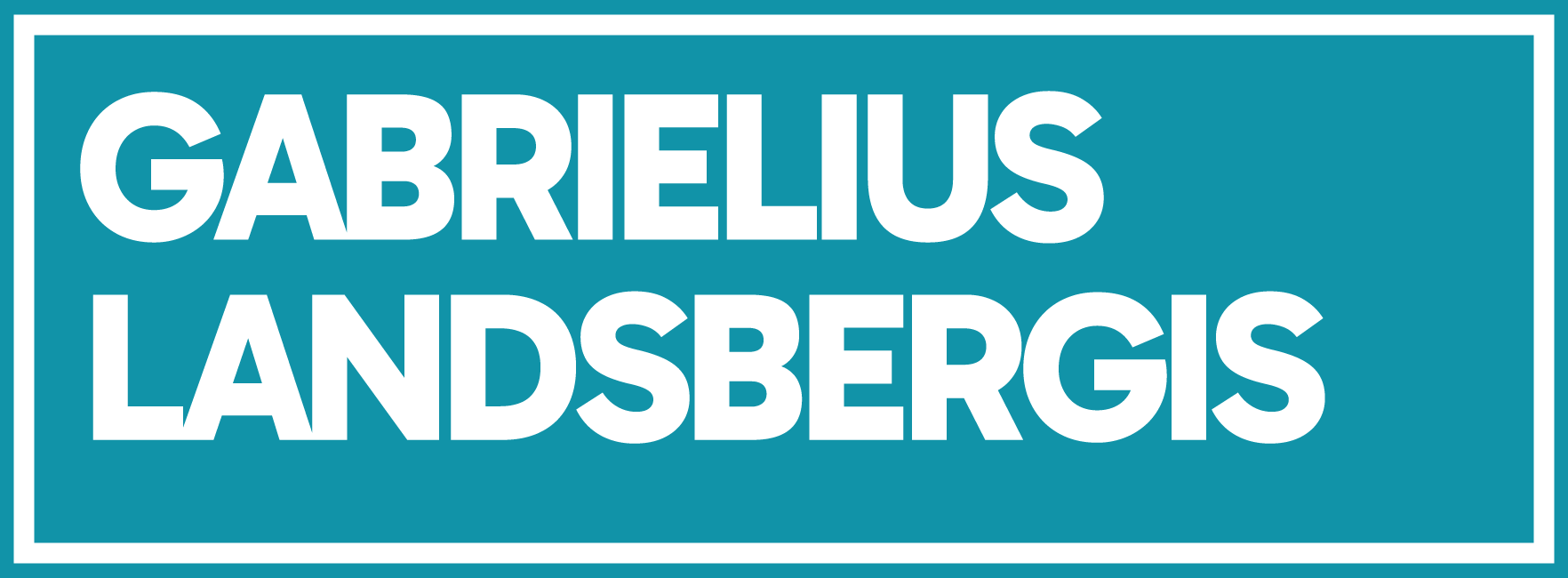
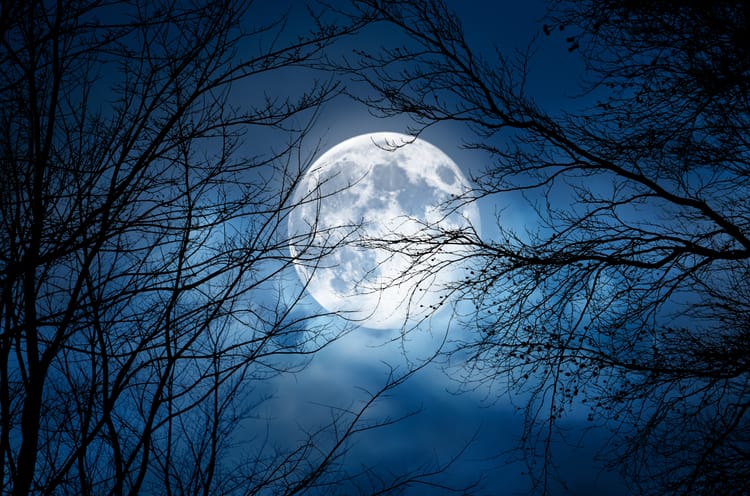
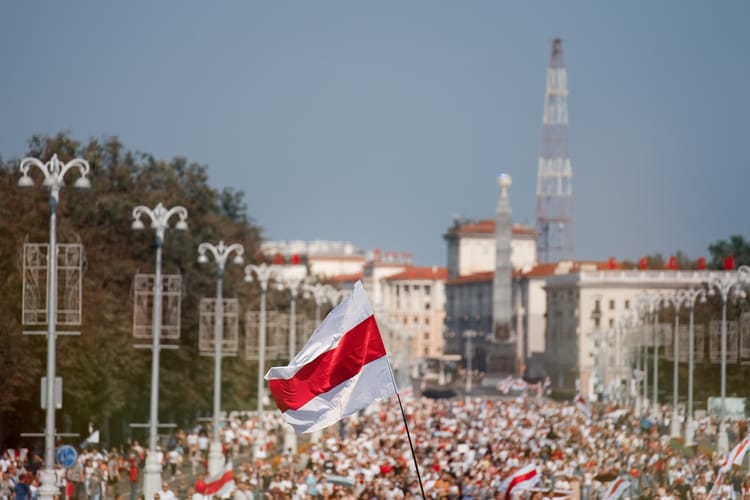
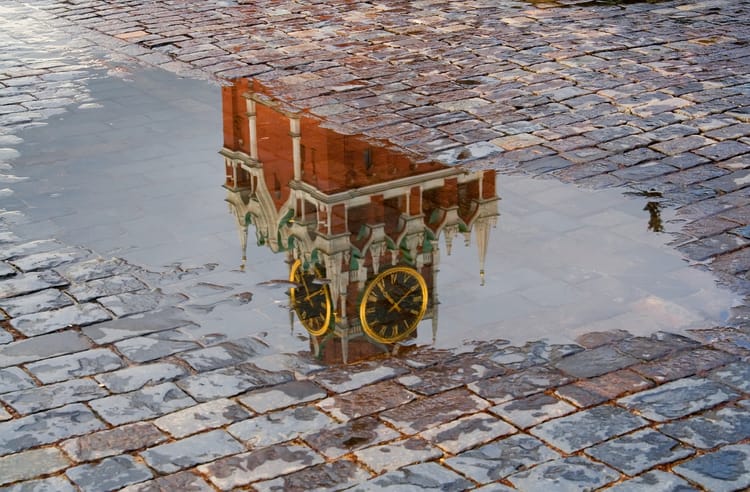


Member discussion